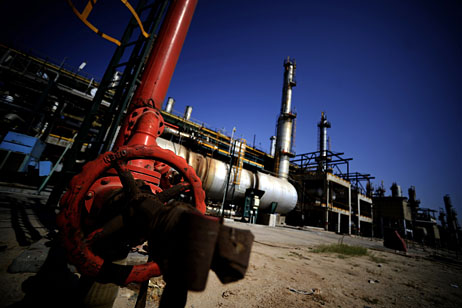The Egyptian Refining Company (ERC) has completed 95% of construction on the project to build an advanced refinery in the province of Qaliubiya, and will begin a test operation of it by next June.
ERC’s Managing Director Mohamed Saad said that the new project is a joint venture between the Egyptian General Petroleum Corporation (EGPC), which owns 24% of it, and a number of Egyptian and Arab investors, and global banks.
Investments in the project amount to $3.7bn, with 87% of funding coming from abroad. 67% of the total funding is through loans.
Many investors from Egypt, the GCC, and development finance institutions, are shareholders. This includes the International Finance Corporation (IFC), which contributed $85m (6.4%) and the Netherlands Development Finance Company (FMO), which holds a share of 2.2% through investing $29m.
Furthermore, the German Investment Corporation (DEG) contributed $26m (2%). Moreover, InfraMed, which is considered the largest investment entity specialised in infrastructure projects in the Mediterranean region, contributed $100m, a share of 7.5%.
Saad added that engineering works are being implemented at a rate of100%, while supplies are also at 100%, while construction has now reached 90%. This brings the project’s total implementation rate to about 95%.
According to the schedule, the ERC will complete the mechanical work of the project in June 2018, then begins the pilot operation, before beginning production in December 2018.
Saad explained that the goal is to produce fuel with European specifications to reduce the volume of carbon emissions in Cairo by 30%. He noted that the company will also contribute to reducing Egypt’s oil imports by 30-50%.
The ERC will produce over 4.1m tonnes per year of refined high-quality petroleum products. This includes about 2.3m tonnes of diesel fuel that matches the Euro V standards; the purest form of diesel in the world.
Saad said that the project will save EGPC about $300m annually through avoiding the costs of shipping and insurance for imports, in addition to revenues raised from refining and storage. In addition, the project will create many jobs, both during construction and operation.
He pointed out that the project has significant economic, environmental and social benefits to society. Economically, the basic idea is to modernise the Cairo Oil Refining Company’s refinery by taking advantage of the fuel it produces of low economic value, and turn it into light products of high value.
The project faced a wave of objections by the people of Shubra Al Kheima, Qaliubiya, as they called it “Agrium of Shubra Al Khaimah”. Government officials have stressed that the project abides by the required environmental protections standards.
The ERC hosted a ceremony last week to honour the 22 scholars that obtained its “Mostakbaly” annual scholarship program. The company has given them the opportunity to continue their education at the Arab Academy for Science and Technology and at distinguished programs at Ain Shams, Zewail, and Nile universities, as well as the American University in Cairo.




